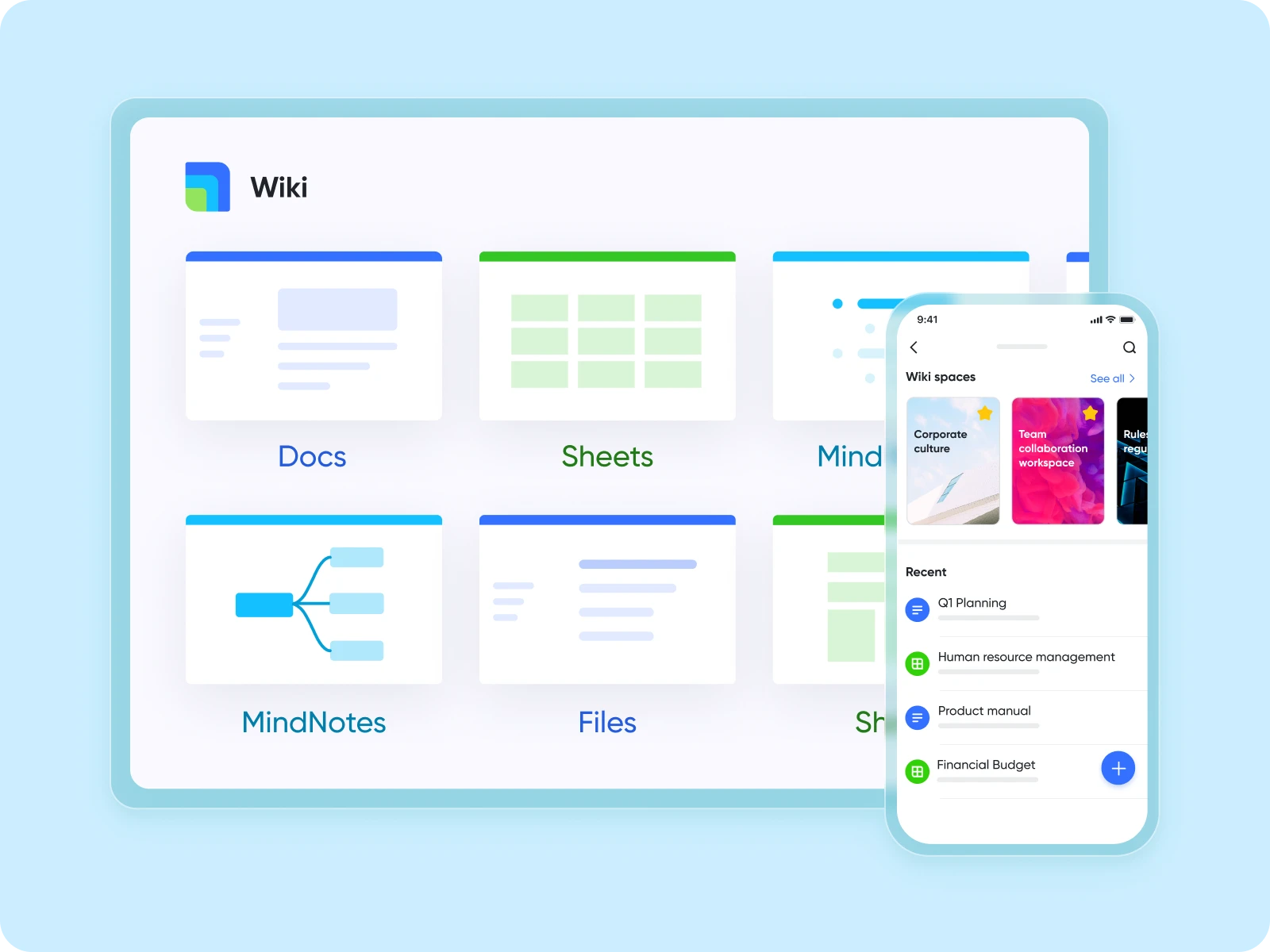How to Supercharge Team Performance with Lark’s All-in-One Workspace
Updated on
Published on

For teams to succeed, they need clear goals, easy access to the resources they need, and not too many problems getting to them. But for many businesses, their systems are broken, which hurts their performance. They use one app to chat to each other, another to keep track of their projects, and a third to keep track of their documents. This set of tools makes things harder, wastes time, and makes workers do more work just to keep up with each other. More and more businesses are embracing project management tools to solve these difficulties. These systems put all the key responsibilities in one place.
Lark is exactly what it sounds like: a place where you can chat, write, plan, and make choices all at once. Teams don't have to deal with processes that are all over the place anymore. They now have a connected platform that keeps performance high all the time.
Lark Base: Structuring information for consistent performance

To do well, you need to be able to find information that is correct and well-organized. Lark Base does this by gathering all of your project information, client records, and operational resources in one location. Lark is more than just a location to store data for a lot of businesses. The connected CRM app makes sure that the data is correct and valuable.
Base allows teams construct databases that fit how they work, whether they are keeping track of project milestones, client information, or performance indicators. Linked records connect tasks, approvals, and projects, which makes it easier for everyone to work together. Dashboards show managers the big picture, and tags and filters help workers get the information they need quickly. This combination of scalability and clarity makes sure that everyone on the team is working from the same structured base, even if the team gets bigger.
Lark Docs: Capturing and refining team knowledge

For teams to work well, they need documentation that changes as the job goes on. People can work together on Lark Docs to make plans, reports, and proposals better. Instead of working with files that don't work together or are always the same, staff work together in real time to make sure that documentation aids performance instead of getting in the way.
Docs is better since it lets people write comments on the parts of the document they are looking at. This keeps people from getting confused. Version histories make people honest and let you go back to prior versions when you need to. Docs is a great way to keep track of your chores and notes so that you can turn your writing ideas into real work. By enabling everyone to write things down simultaneously, Docs makes sure that information flows as readily as the process itself.
Lark Messenger: Communication that drives outcomes

People don't do as well when they can't talk to each other or when they have to wait. Lark Messenger makes sure that teams talk to each other quickly and clearly and that their talks stay on topic so they can finish their work. Employees may work together in one safe, connected place instead of using a lot of separate chat apps or email chains.
Messenger helps teams remain on track by letting them build individual channels for each project or department. When you send files using Messenger, they stay in the conversation. Pinned messages make sure that important updates are always easy to find. Persistent chat histories keep account of why decisions were made, which is useful for getting new people on board or getting back to old initiatives. Messenger also allows teams turn things they talk about into tasks they have to do right away. Talking and doing are intimately related, so talking helps things go forward instead of just creating noise.
Lark Calendar: Aligning schedules with team priorities

How well teams do often hinges on how well they use their time. Lark Calendar helps with this by making sure that everyone's schedules are in sync and that time is a shared, visible resource instead of a source of friction.
When employees can see all of their deadlines, milestones, and meetings in one place on a shared calendar, they are more likely to keep their promises. Automatic time zone conversion lets people from all around the world work together, and regular meetings let workers get ready for regular reviews. You may connect events directly to records or documents so that everyone who comes has the right tools. Smart reminders help people meet deadlines, and everyone on the team can see what's going on, so they don't book the same thing twice. Calendar helps teams stay on the same page about their goals and makes planning easier, which helps them achieve better.
Lark Approval: Accelerating decision-making with automated workflows

Slow approvals can hamper performance, especially in settings where things happen quickly. Lark Approval fixes this problem by making choices faster and more often. Employees fill out standard forms to ask for things, and managers read them in full context. Everyone is responsible for every step.
Approval has an automated workflow that distributes requests straight to the individuals who need to see them to speed things up. Notifications help you stay on track, and clear logs keep note of all the options so you may use them again later. Dashboards help managers find problems by displaying them approvals that are still waiting and those that have already been granted. Role-based permissions protect essential workflows and make sure that security is never less important than speed. Approval speeds up and makes decisions more responsible, which keeps the team from slowing down.
Lark Wiki: Preserving knowledge to sustain performance

Lark Wiki keeps knowledge the same, which is vital for success throughout time. Wiki helps ensure that important lessons don't get lost when people depart or get lost in their communications. Instead, they are stored in a hub that is well-organized and easy to find.
Wiki helps teams do their best work by enabling them keep track of what they learned from projects, procedure manuals, and best practices. When workflows change, the pages refresh to maintain the information up to date. via Base, employees can link Wiki articles to projects or share pages via Messenger. This makes it easier for students to put what they learn to use at work. Wiki makes it easier for everyone to seek expert assistance and for people who are in teams that are growing or far apart to remember things. This information about the organization is helpful immediately and will make it easier to adjust in the long run.
Conclusion
A team can't only work hard; their systems also need to be able to talk to each other, share information, and get things done. Base organizes data, Docs enables people to work together on documents, Messenger makes sure that communication leads to outcomes, Calendar keeps everyone on the same page, Approval speeds up decisions, and Wiki keeps company information safe. The only location modern teams need to go to get things done is Lark.
Companies get rid of the problems that slow things down and make sure everyone knows what they need to accomplish when they combine their operations. Leaders can see how things are progressing, employees know what they need to do, and teams keep working even when their priorities change. Lark converts productivity into performance by turning the workplace into a single space. Lark does this in a world where being adaptable and productive is the key to success.







